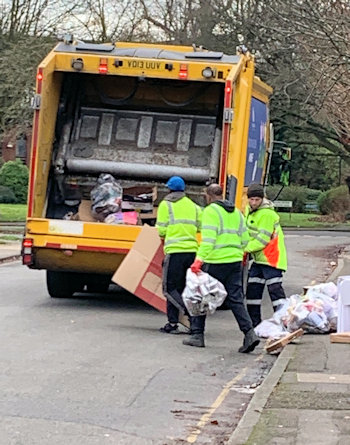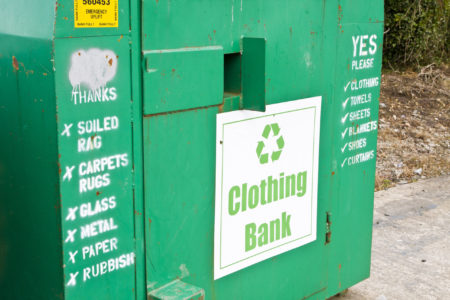Waste sector employees were granted key worker status by the government last week, but it has been unclear to many as to whether this extends to every sector within the industry or merely a select few.

For example, whether those collecting from textile banks on supermarket sites are included has been a source of confusion, as it has been for those working at other recycling facilities in sectors such as construction.
Following discussions with Defra, Jacob Hayler, the executive director of the Environmental Services Association (ESA), has sought to clarify who exactly the key workers within the waste industry are.
He told letsrecycle.com: “The ESA is regularly engaging with Defra on a range of issues facing the sector during this coronavirus crisis and, as far as key-worker definitions are concerned, Defra considers this category to apply to all employees engaged in frontline household and non-household collection services; those who operate collection, treatment and disposal facilities; and the support staff necessary to keep these vital services running.
“More broadly, the advice suggests that any worker who is critical for business continuity, as defined by their employer, is allowed to remain in work and is entitled to child care, although it is important that employers set the bar high for this definition so as not to overwhelm the education system in its current form.
“It is our understanding that these definitions also apply to specialist sub-contractors who are critical to operations, for example welders who work in energy-from-waste facilities.”
Textiles

As of yet, there has not been specific guidance for those classified as ‘key workers’, and with many textile banks situated at supermarkets, it is thought they could be busier than usual and therefore need somebody to empty them.
Alan Wheeler, director of the UK’s Textile Recycling Association, is among those calling for clarity from the government about who precisely should remain working.
He told letsrecycle.com: “The issue of who is a key worker within the waste sector really needs clarifying.
“There are many textile banks on UK supermarket sites, and as these are some of the only places open people will use these banks as they might be clearing out their house, for example.”
There have been suggestions that textile banks may need to close, but so far this is unclear.
Critical sector
On 19 March, the waste sector was included on a list of industries described by the government as a “critical sector” (see letsrecycle.com story).

The phrasing, though, is somewhat broad, with those in “waste disposal sectors” described as key workers, along with essential staff in utilities, communication and financial services.
Guidance from the government reads: “If workers think they fall within the critical categories above, they should confirm with their employer that, based on their business continuity arrangements, their specific role is necessary for the continuation of this essential public service.”
However, it is entirely plausible that without further government guidance employers may be unaware to whom this applies.
Mr Hayler said: “Clearly, many waste workers are providing an essential front-line service and this isn’t something they can do from home.
“There are some potential challenges around maintaining social distancing for collection crews which the sector will have to review with Government, and that individual operators are working to overcome.”
Metals
The metal recycling sector is another operating with key staff only.
The British Metals Recycling Association CEO, James Kelly, said: “Last week, DEFRA told us that it believed all those frontline staff who work in the collection, processing, recycling and disposal of waste, including scrap metal, fall under the ‘waste disposal sectors’ definition on Government’s key worker list.
“Keeping the supply of scrap flowing is important because it is vital in the production of items such as food and drinks cans”
“However, we understand this applies only to those employees that perform tasks that cannot be undertaken from home such as weighbridge and yard operatives and the key management and support staff required to support them.
“I am very pleased that Government has recognised the integral role we play. Keeping the supply of scrap flowing is important because it is vital in the production of items such as food and drinks cans, as well as many other everyday items. Nevertheless, it is down to each individual company to liaise with its employees and to decide whether to continue to trade or to temporarily close their gate.”











Subscribe for free